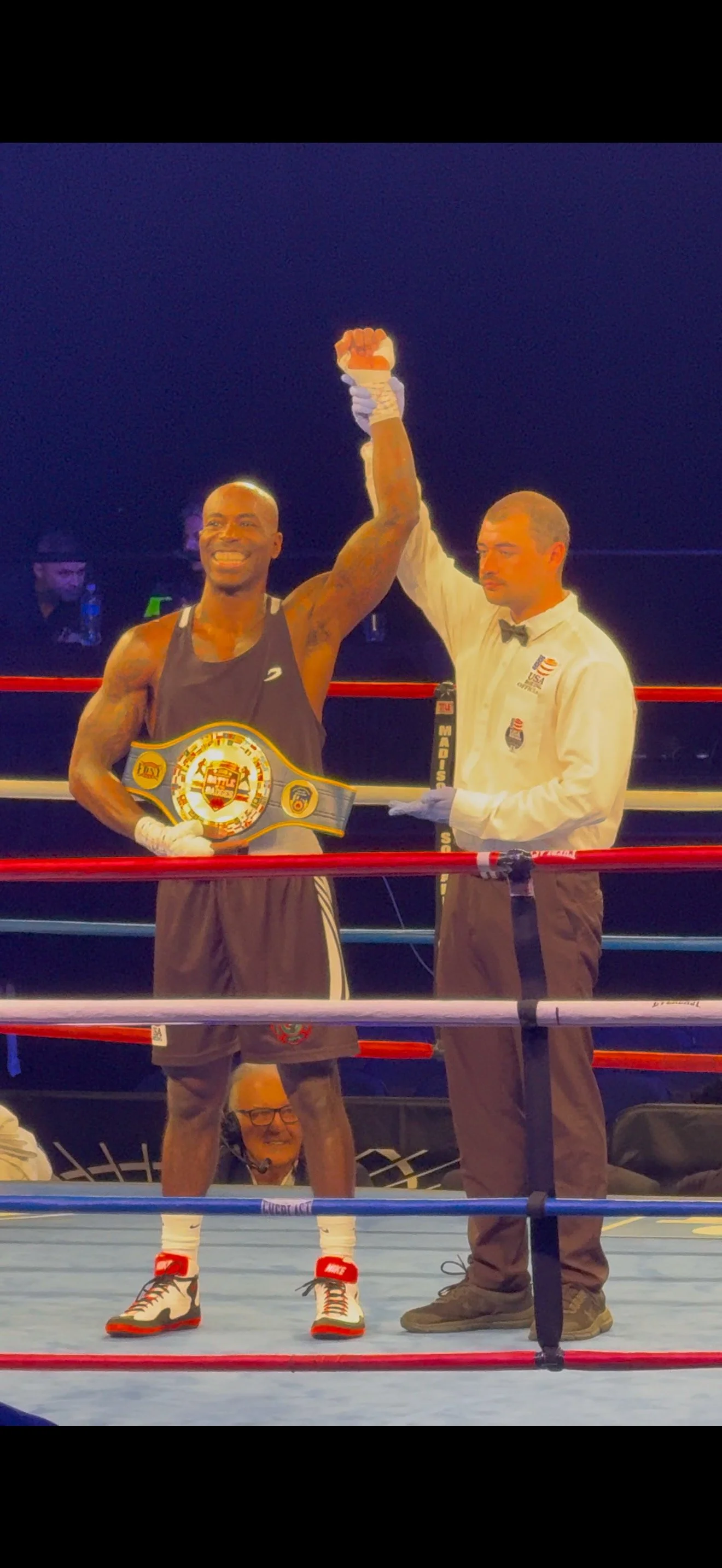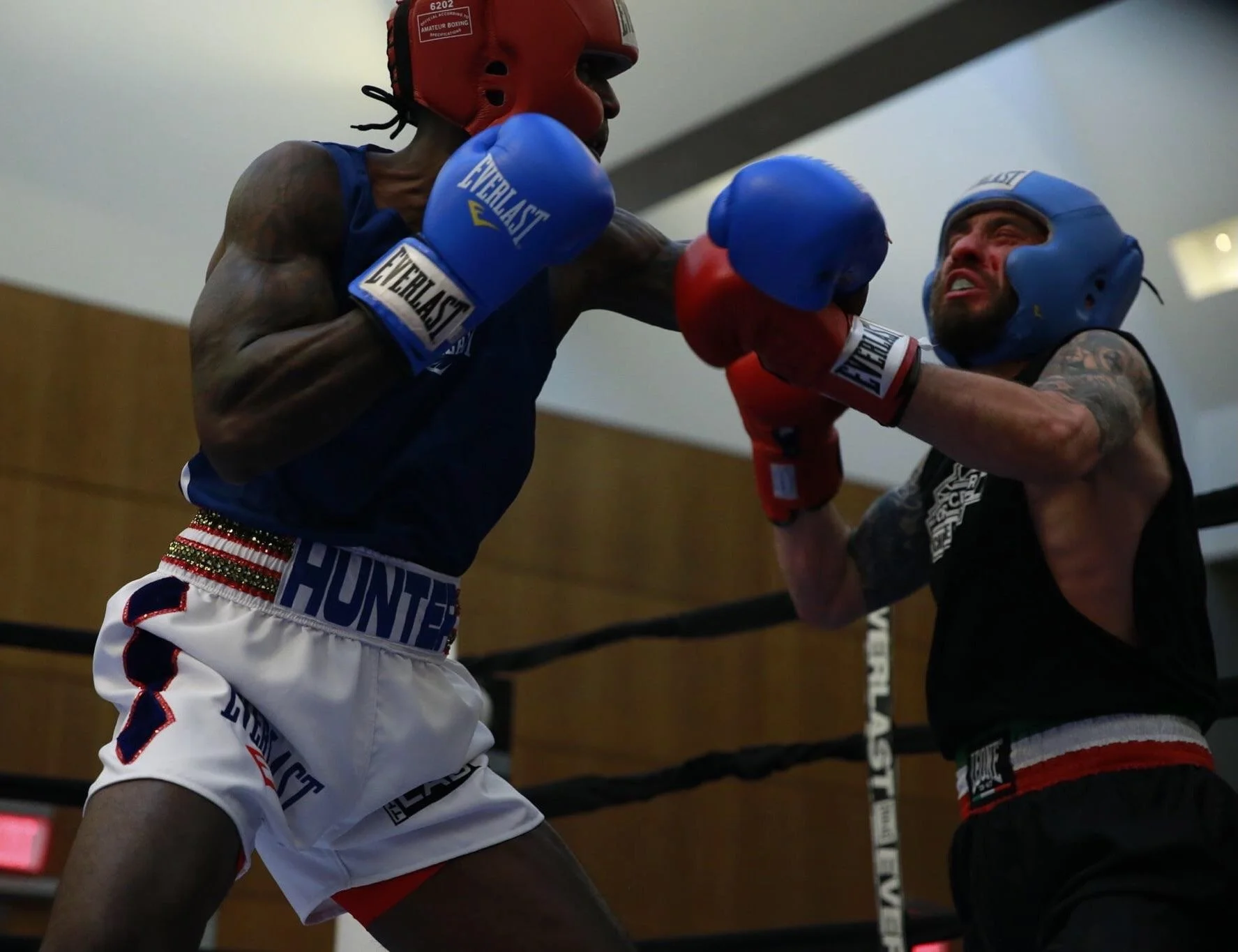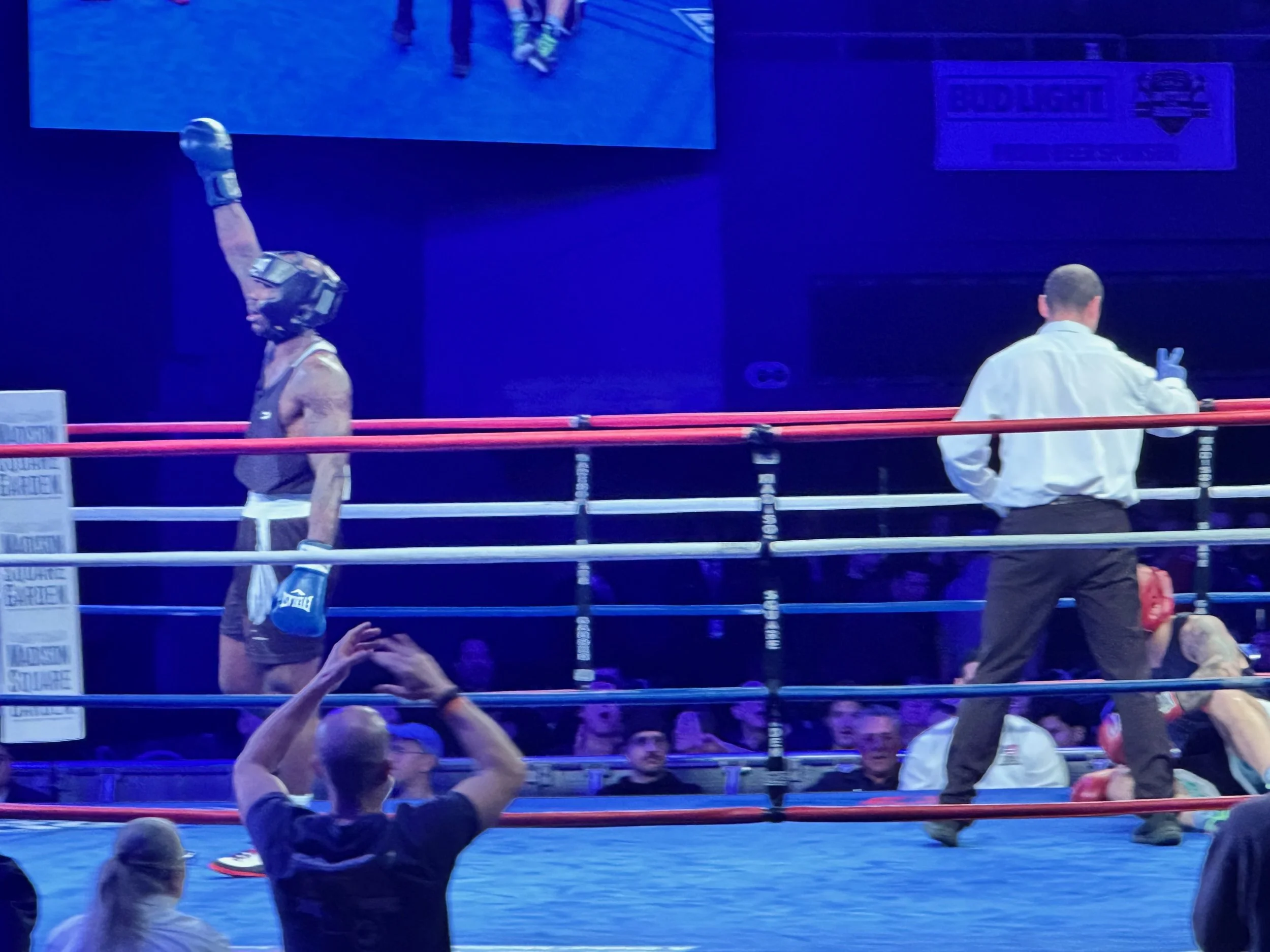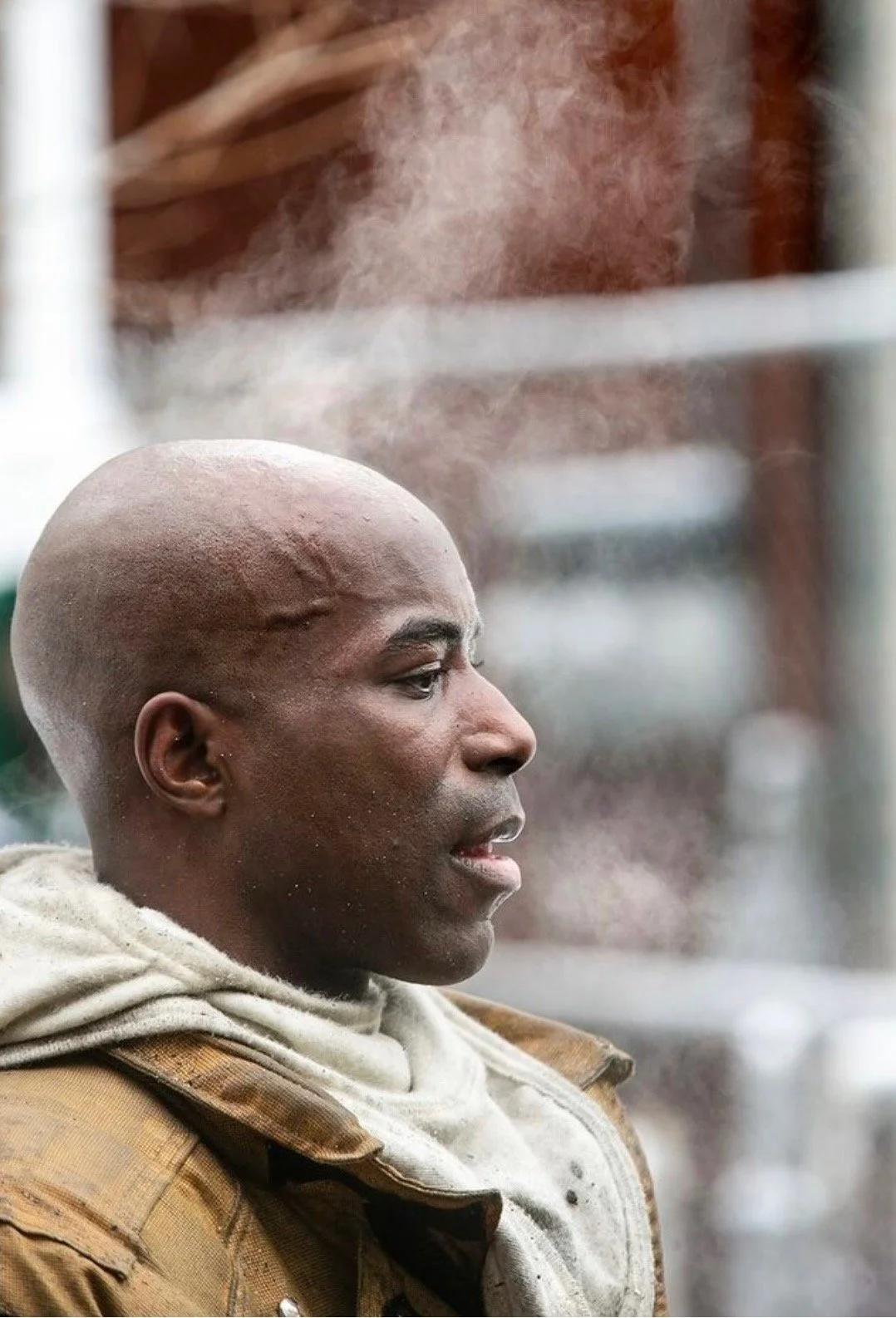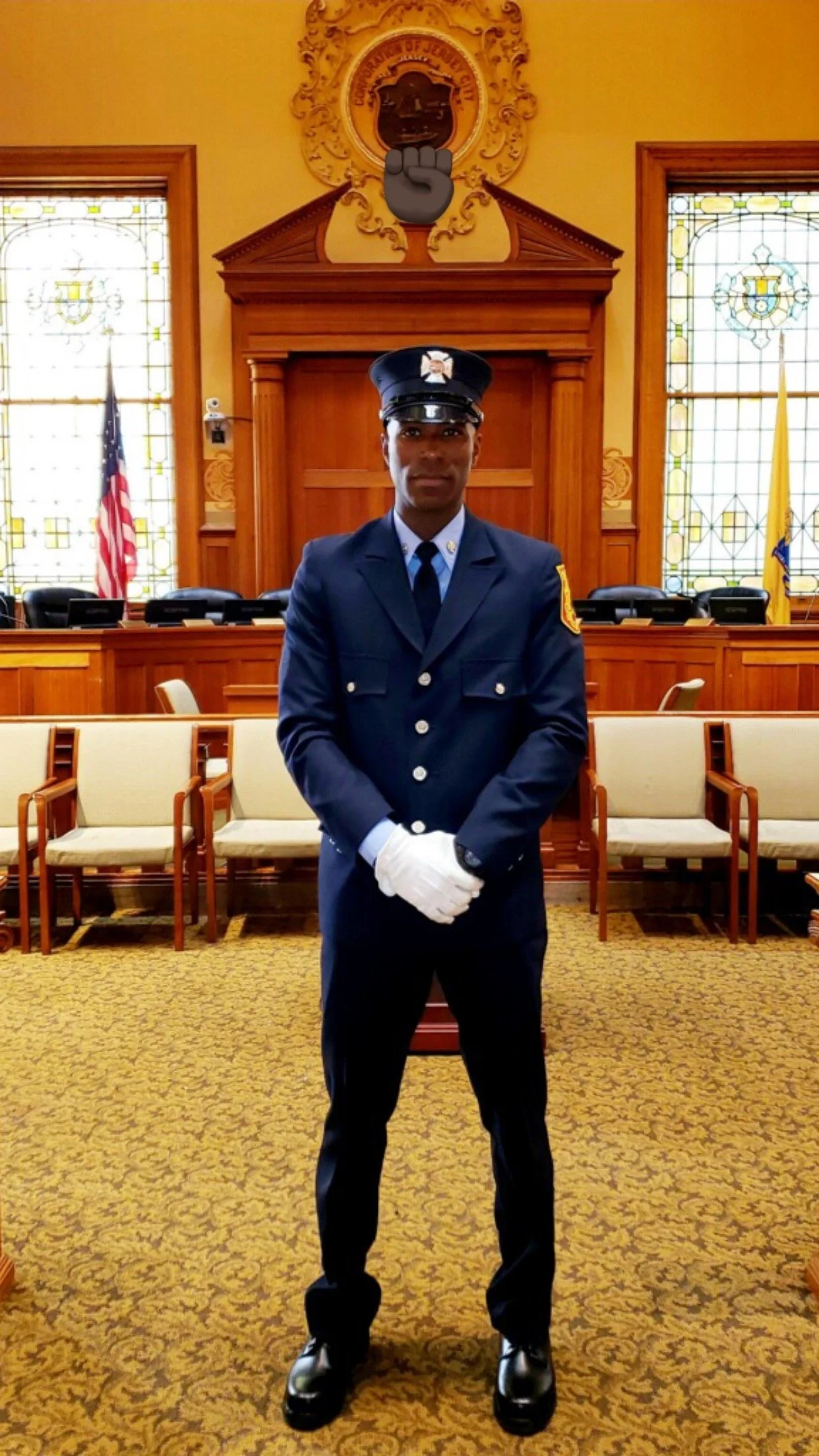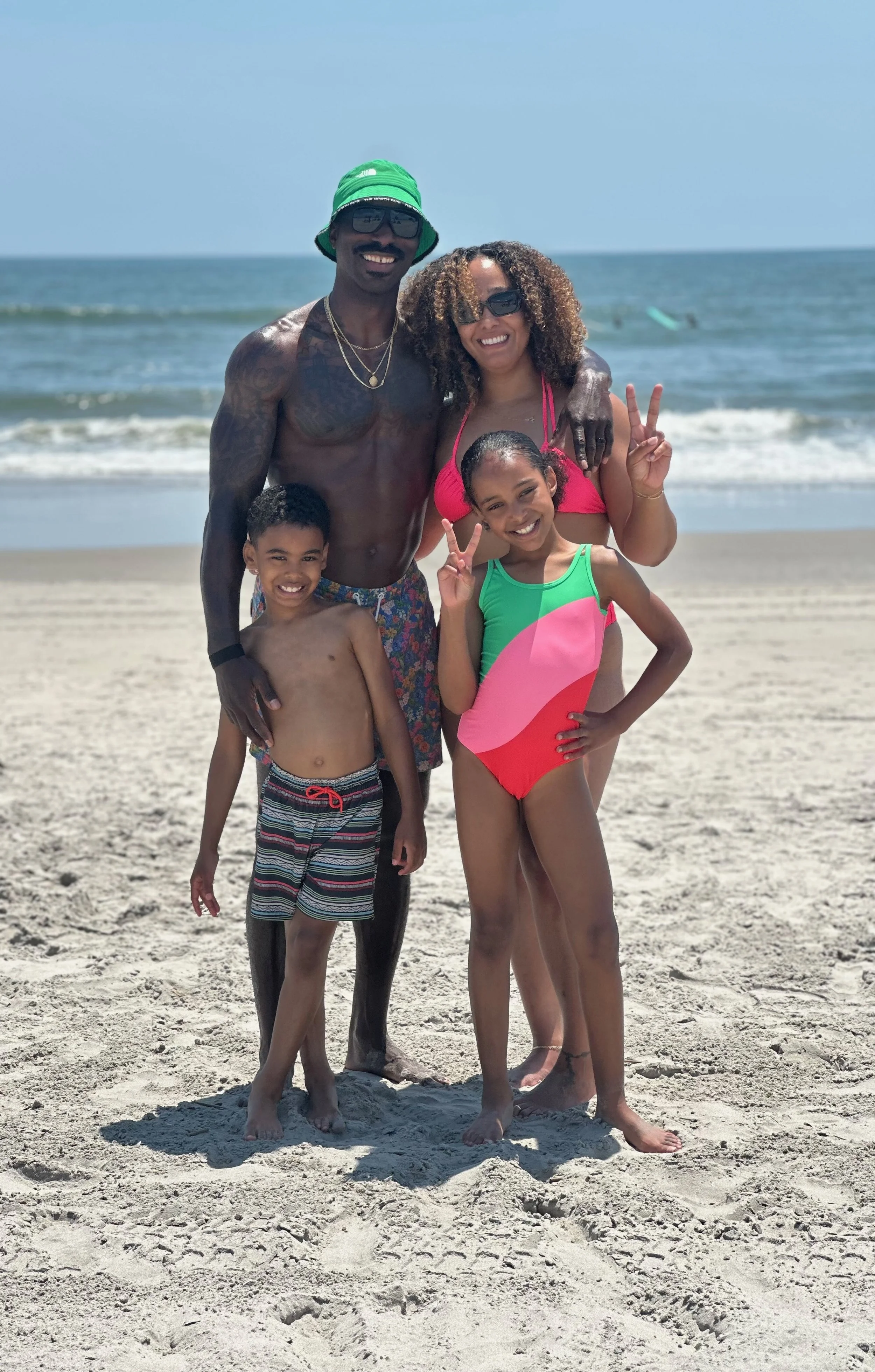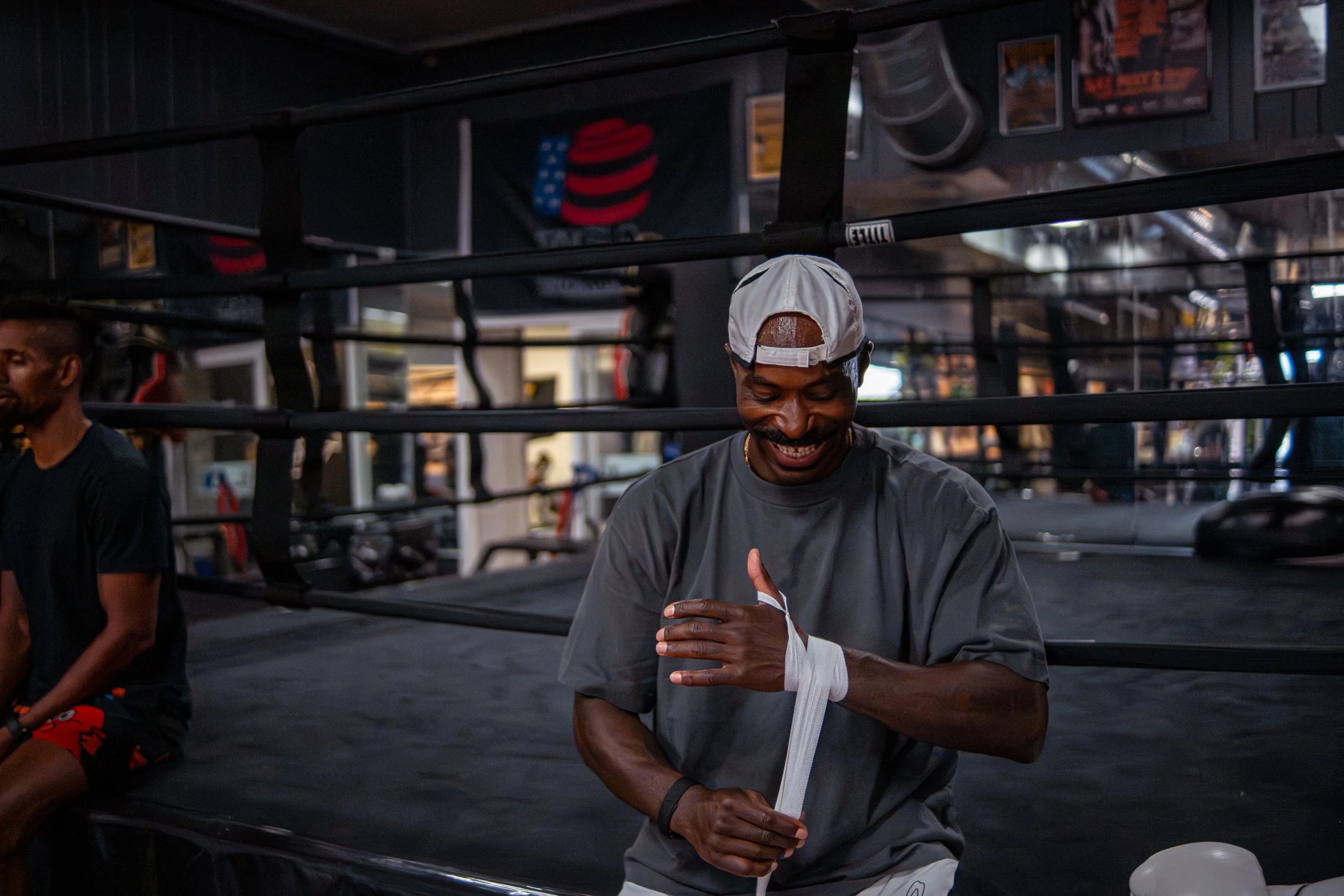Jeff Hunter—
From the Ring to the Firehouse
Coach spotlight published on Sept 24, 2025
COACH
Jeff Hunter
STUDIO
The Sweet Science Lab
AUTHOR
Matt LeGrice
Jeff grew up in Pleasantville, New Jersey, just outside Atlantic City. Movement and athletics has always been part of his life, with sports shaping him from the start. Instead of following a corporate path, he leaned into his strengths as a boxer, coach, and lifelong competitor.
After closing a chapter of traveling the country as a strength coach for pro fighters, a move to New York City and a chance encounter set him on the path to owning his own boxing gym. Today, Jeff has built a space where training feels authentic. His gym, The Sweet Science lab is never pretentious, never grimy, but always welcoming.
Alongside running the gym, Jeff serves as a Jersey City firefighter, following in his mother’s footsteps of fire service. For him, it all comes back to the same foundation: family, community service, strength, and building communities that last.
Let’s start simple. Who are you, and where’d you grow up?
I’m Jeff Hunter. I grew up in Pleasantville, New Jersey, right outside Atlantic City. These days I live in Jersey City, where I work as a firefighter and run my gym. Pleasantville is home, but most people don’t know it, so I usually just say I’m from Atlantic City.
What kind of kid were you? Were you the quiet dude, or the one always out running around playing sports?
I was always into sports. Football, basketball, track—I never really stopped moving. People tell me all the time, “You’re so fit,” and honestly, it’s because I never quit. I’ve been training, playing, or exercising my whole life. It’s my idea of fun. That’s why I look the way I do—it’s just the byproduct of never stopping.
Were your parents into fitness at all, or was that something you just found on your own?
Not really. Back then, fitness wasn’t as much of a thing. My parents were more focused on providing for the family and surviving. They didn’t have the luxury of going to the gym. But they were always supportive of me. My dad even encouraged me to study something sports-related. Something like physical therapy or sports medicine, but I ultimately went with business. Funny enough, running a gym and training is still 80% business and 20% coaching. I already had the training part down from my experience in sports.
How did fitness turn into a career?
Right out of college, I started working at gyms in South Jersey. At first, it was part-time, just floor shifts and helping out. Then I got into boxing. I’d been training for myself, but I connected with a group of fighters who were all turning pro. One was an Olympic alternate, another came from Puerto Rico. I became their strength and conditioning coach.
That was my life for about five years: traveling the country, training in every kind of gym you could imagine, being around the pro fight game. We went from zero fights to guys being 8–0, 14–0. Shit was exciting.
Oh shit, so a full chapter training pro fighters? I want to hear more about that. What was it like traveling with a bunch of boxers?
It was tough. The fight game is brutal. Not everyone can commit to it full time. Eventually the team splintered.
Some of our guys had to leave for injuries, relocations. And one of the guys, who I was closest to and probably the most talented, was killed. That was devastating.
Damn dude, sorry to hear that. So the band broke up and you had to move on. How’d you end up opening up in Hoboken/Jersey City?
I realized I’d hit a ceiling back home. I was the top trainer at my gym, had a weekly newspaper column showing exercises, but I knew I wanted more. So I told myself: New York first, then maybe Miami, then maybe the West Coast.
So Jersey City was an accident. I was training in New York, just looking for a boxing gym, and I walked past a space under construction in Hoboken. I asked the guy what it was, and he told me it was going to be an Everlast Gym. I said, “I just want to hit the bag here, can I show you my resume?”
That turned into me training there, then teaching classes, then managing the gym. Eventually, I signed a modeling contract with Everlast and was on their packaging for a few years. All from walking past a construction site.
Photos provided by JeffYou’ve also got a whole other career as a firefighter. When did public service come into the picture for you?
It was always in the back of my mind. My mom worked in fire service, and some of my best coaches growing up were firemen, so I knew early on it was a great career. In my twenties, I was too locked into boxing and training to think about it. But when I hit my thirties, with a family to provide for, I realized it was now or never. I took the test, scored well, and got into the academy.
What was that first stretch like—juggling the academy, the gym, family life?
Honestly, I thought I’d have to give up the gym. I stepped away for a few months for the academy. I told my clients, “I’ll be back, but I have to do this.” Luckily, I was able to build it back up quickly. It worked out.
Photos provided by JeffHow would you describe the job to someone who only thinks of it as “running into burning buildings”?
That’s part of it, yeah, but it’s so much more. Firefighting is one of those rare jobs that’s truly rewarding. You’re serving your community, working as part of a team, and it doesn’t feel like work. Most people who don’t know someone in the job don’t realize how good of a career it really is. I don’t know anyone who hates it.
Is firefighting something you see yourself doing for life, or do you approach it differently?
Yeah, this is the plan. It’s a career you can retire from, and you get out of it what you put in. For me, it’s about balance—family, the gym, the firehouse. I’m not chasing ten different gyms or franchises. I just want to keep the fire career strong and make my space here the best it can be.
“Firefighting is one of those rare jobs that’s truly rewarding. You’re serving your community, working as part of a team, and it doesn’t feel like work.”
Switching gears, what’s your training philosophy? Like, when someone new walks in the door, what should they expect?
For me, it’s about capability, not aesthetics. I don’t love when people come in saying, “I just want to lose this” or “I’ve got a wedding dress with my back out.” Sure, we’ll get results, but the goal should be strength, health, and athleticism. How you look will come as a byproduct.
As a coach, I’m not standing there counting your reps. You don’t want me counting your reps. I’m watching your movement, making corrections, making sure you’re safe. That’s the real job. Timed intervals give me the space to do that and give clients the freedom to work hard without worrying about keeping up.
Instead of reps, everyone works for a set time. It levels the playing field and takes the pressure off. When you’re chasing numbers, people start comparing—“Susan always finishes her 12 reps before me, so I’ll just do eight.” Timed work takes that away. Everyone gets to focus on their own pace and their own form.
What do you want people to pick up on the second they step through the door?
That the gym is authentic…but clean. I’ve been in boutique gyms that feel fake, and I’ve been in boxing gyms so grimy you didn’t want to wear nice clothes inside. I want the balance: a space where training is real, the kettlebells are worn, but your mom could come in and feel comfortable too. Not bougie, not gross, just authentic.
A lot of gyms can feel intimidating to people just starting out. How do you make this place feel more accessible?
I never want someone to walk in here and feel like they don’t belong. I’ve been in places that feel too polished and fake, and I’ve been in others that were so rough you didn’t even want to touch the equipment. I try to keep the balance. The training is real, the kettlebells are worn, but the space is comfortable. I want it to be a place your mom could train and feel at home, but where serious athletes feel challenged too.
Do you believe everyone can get stronger, no matter their starting point?
One hundred percent. I’ve worked with people at every level, and the thing I always come back to is capability. Everyone has room to improve. Maybe it’s adding a pull-up, maybe it’s being able to carry groceries without pain, maybe it’s running their first mile. The goal isn’t to turn everyone into an athlete, it’s to help them realize they’re capable of more than they thought. That’s what keeps me coaching.
“The goal should be strength, health, and athleticism. How you look will come as a byproduct.”
You’ve recently started training for jiu jitsu. What’s that like?
Humbling in the best way. In boxing, I’d consider myself a black belt if that existed, so jiu jitsu puts me back at the beginning. Smaller, older guys toss me around with pure technique. I love it.
I’ve already competed a couple of times and won. But honestly, it’s not about winning, but more about being a student again. I try to be the client I’d want: consistent, eager, ready to learn. That makes teachers want to pour into you.
Competing in jiu jitsu has to feel different than stepping into a boxing ring. How do you handle the nerves?
Not really. Boxing cured me of that. In boxing, you might sit all day waiting for your fight, with your family in the crowd, and the pressure is enormous. Jiu jitsu? You show up, scan a QR code, get told what mat you’re on, and if you lose, you tap. No big deal. It’s way less stressful.
Outside of all this, are there other skills or goals you want to chase?
Swimming. I’m not a good swimmer. My daughter’s a fish. She just won every race in her first swim season. I want to be able to keep up with her, and I’d like to do a triathlon one day. So swimming is my next side quest.
You’ve mentioned your dad and mom a few times. What lessons did you take from them?
My dad worked in casinos for 25 years. He wasVP of games at Bally’s and also ran his own vocational school teaching blackjack and craps. But his passion was photography. When he retired, he finally got back into it. He didn’t get much time before cancer took him, but he inspired me.
I don’t want to wait until retirement to do the things I love. That’s why I live the way I do now with my family, firefighting, and the gym. If it’s meaningful, I want it in my life today.
And what about your own kids. What do you hope they take away from watching you. And vice-versa, what have you learned from them?
That they don’t have to live a nine-to-five life. My wife and I both work non-traditional jobs, so our kids see us with flexible schedules, doing things we love. I want them to know they can do the same.
And more than anything, I want them to keep their joy. Kids wake up every day expecting fun. My son will say, “Dad, I didn’t have that much fun today,” and it’s his way of holding me accountable. They remind me that life’s supposed to be enjoyed.
And last one—If you disappeared tomorrow, what do you think your legacy would be?
That I cared about people. Whether it’s my family, the firehouse, or the gym, I want people to remember that I tried to make them better, stronger, and more confident. Not just physically, but in life. I’m not chasing money or fame. If the people closest to me can say I made a difference, that’s enough.







